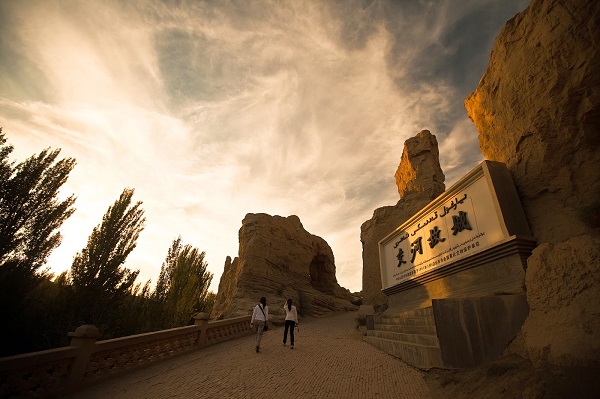Normally, a dictionary is a collection of words alphabetically arranged with corresponding definitions. On a rare occasion, it can be a collection of essays.
Shen Wei’s “A Dictionary of Xinjiang” was one of the featured literary works during the recently concluded Shanghai Book Fair (Aug. 19-25) held at the Shanghai Exhibition Center (SEC).
Shen’s book, a compilation of more than a hundred essays, attempts to describe the sun-kissed Xinjiang Uyghur Autonomous Region based from his own personal experiences and understanding of the place.
Born in Huzhou in 1965, the 50-year-old poet attended Zhejiang Normal University. In 1988, he went to Xinjiang and settled there.
According to China Daily, Shen told those who were present at the book fair that local and foreign writers alike should make an effort to discover the “universal humanities” of Xinjiang.
In “A Dictionary,” Shen wrote: “If the Tian Shan Mountains were the spine of a book, Xinjiang would be an opened dictionary.”
He further described the mountain ranges as “an enormous feat of engineering, given to the earth by the sky . . . like a line of poetry winding across an inextinguishable perfection” and the existing glaciers as “the many thousand meters of a great man’s white hair.”
Shen also wrote about the historical city of Turpan.
He wrote that there are two Turpans: a living and a dead one. The abundant grapes represent the “living Turpan.” As for the “dead Turpan,” it is seen in the city’s natural, archaeological, and architectural treasures, such as the Bezeklik Thousand Buddha Caves, the Flaming Mountains or Gaochang Mountains, the Astana Graves and the Jiaohe Ruins.
The author even quoted Swedish diplomat and Turkologist Gunnar Jarring’s (1907-2002) description of Turpan: “world’s largest outdoor archaeological museum.”
“A Dictionary of Xinjiang” hit bookstores in Oct. 2014 and got sold out a few months after. The publisher, Shanghai Literature and Art Publishing House, produced another batch of copies for the book fair, reported China Daily.
Eleanor Goodman, an American research associate at Harvard University’s Fairbank Center for Chinese Studies, translated excerpts of the book into English, and her work won her Ninth Letter’s 2013 Literary Award for the category Literature in Translation.
Ninth Letter is an American literary magazine published by the University of Illinois at Urbana–Champaign.
Another book containing Wei’s poems and published by Changjiang Literature and Art Publishing House came out in July 2014.
This year’s Turpan Grape Festival started on Aug. 20, with all the festivities lasting until Sept. 6.
For those who may want to participate, when they get to Turpan and happen to take notice of any rocks along the way, recall what Shen wrote about them: “Since you can’t chew on a rock, you might as well kiss it.”
Who exactly said that and why? Well, read the book to find out.


